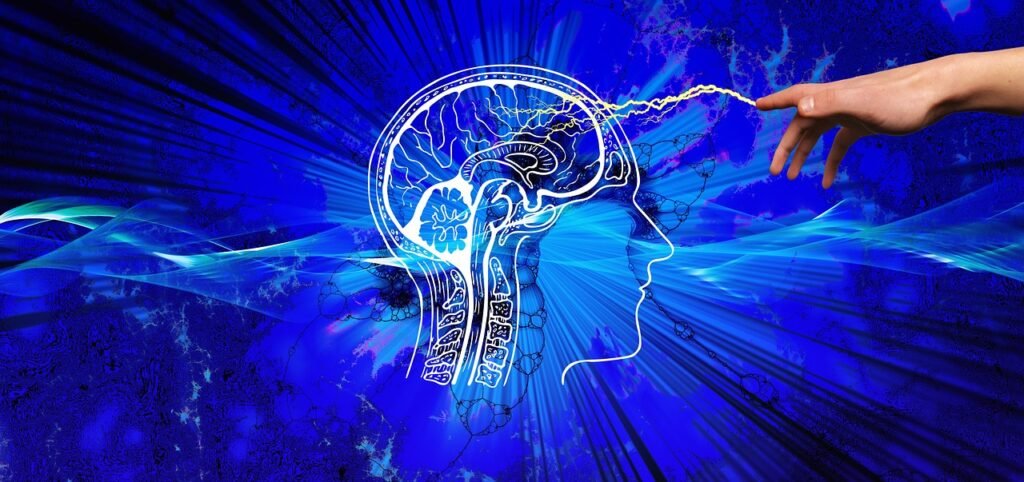- Key Highlights
- Introduction
- Understanding ADHD and its Impact on Focus
- The Role of Meditation in the Enhancement of Focus
- Meditation Techniques Tailored for ADHD Individuals
- Practical Tips to Incorporate Meditation into your Life
- The Positive Effects of Meditation on Sleep and Motivation
- The Best Program to Facilitate your Meditation Routine
- Conclusion
Contents
- 1 Key Highlights
- 2 Introduction
- 3 Understanding ADHD and its Impact on Focus
- 4 The Role of Meditation in the Enhancement of Focus
- 5 Meditation Techniques Tailored for ADHD Individuals
- 6 Practical Tips to Incorporate Meditation into your Life
- 7 The Positive Effects of Meditation on Sleep and Motivation
- 8 The Best Program to Facilitate your Meditation Routine
- 9 Conclusion
Key Highlights
- Explore how meditation can effectively enhance focus and attention for individuals with ADHD.
- Understand the different types of meditation techniques that are beneficial for managing ADHD symptoms.
- Discover the scientific evidence supporting the efficacy of meditation in improving cognitive function and flexibility for ADHD individuals.
- Learn practical meditation techniques tailored specifically to help those with ADHD, such as mindfulness and focused attention meditation.
- Implement meditation into your daily routine with tips on creating a suitable environment and setting realistic goals for consistent practice.
- Uncover the positive impacts of meditation on sleep quality, motivation, and overall well-being for individuals with ADHD.
Introduction

Navigating daily life with ADHD can be challenging especially for those of us who have jobs that require sustained focus and motivation. By delving into the world of meditation practice, individuals with ADHD can potentially enhance their attention span and cognitive abilities. This article explores the intersection of ADHD and meditation techniques, shedding light on how mindfulness can positively impact mental clarity, emotional regulation, and overall well-being for those seeking to improve their focus and concentration.
Understanding ADHD and its Impact on Focus

ADHD, or Attention Deficit Hyperactivity Disorder, poses challenges to focus and attention span. We may struggle to maintain concentration on tasks, leading to difficulties in daily activities and meeting deadlines. The detrimental effect it has on focus can affect work performance, academic success, and overall quality of life. Identifying ADHD in its early stages allows for timely implementation of strategies and treatments that can significantly improve focus and behavior before future mental health issues can arise. Understanding the science behind ADHD sheds light on the cognitive functions affected by this condition, highlighting the importance of tailored strategies like meditation for improving focus, sleep quality, and motivation in life.
The Science Behind ADHD
Individuals with ADHD often experience challenges in attention regulation due to differences in brain structure and function. In the brain, neurotransmitters like dopamine and norepinephrine play a crucial role in attention mechanisms within the prefrontal cortex. Meditation and mindfulness practices can help improve daily life by building on those neural pathways that are impaired and increasing the levels of dopamine and norepinephrine through a state of mindful awareness.
How ADHD affects daily life
Those of us with ADHD often struggle with sustaining attention, leading to difficulties in daily tasks, sustaining long-term projects and meeting academic and professional goals. Simple activities can become challenging as the mind wanders and focus is lost easily. You may find it hard to prioritize and organize activities, affecting overall success in various aspects of life. Those of us with ADHD are often prescribed stimulant medications like Adderall, Concerta, or Vyvanse. However, medication shortages do occur and many people cannot afford the cost of ongoing drug therapy. This highlights the need for more targeted non-pharmaceutical strategies like meditation.
The Role of Meditation in the Enhancement of Focus

Those of us with ADHD often struggle with maintaining focus due to their condition. Meditation practices have shown promising results in enhancing attention span and cognitive function. By engaging in different types of meditation like concentration meditation or mindfulness techniques, we can improve our ability to stay present and regulate our emotions effectively.
Types of meditation beneficial for ADHD
Lets explore two different types of meditation. Mindfulness meditation helps in focusing on the present moment, enhancing attention span. Focused attention meditation involves concentrating on a single focal point, improving cognitive function. Both types aid in emotional regulation and mental clarity. Incorporating shorter sessions initially and gradually building up to longer periods is recommended. These meditation techniques have a profound impact on boosting focus and cognitive abilities that are impaired by ADHD.
Meditation Techniques Tailored for ADHD Individuals
Those with ADHD can benefit from specific meditation techniques. Mindfulness meditation, focusing on the present moment without judgment, can help manage distractions. Shorter sessions initially, gradually increasing to longer sessions, are effective. With these techniques, we can enhance our cognitive abilities, regulate our emotions, and improve mental clarity.
Starting with mindfulness meditation
Begin your meditation practice with mindfulness meditation. Focus on the present moment, observing your thoughts without judgment. Find a comfortable position, close your eyes, and take deep breaths. Direct your attention to the sensation of your breath entering and leaving your body. When your mind wanders, gently bring it back to the breath. Start with shorter sessions and gradually increase the duration.
Incorporating focused attention meditation
To enhance focus, try incorporating focused attention meditation into your routine. This technique involves concentrating on a single focal point, like the sensation of your breath or a specific object. As your mind wanders, gently guide your attention back to this focal point. Start with shorter sessions and gradually increase the duration as you progress. Regular practice of focused meditation can improve cognitive function, emotional regulation, and overall mental clarity.
Practical Tips to Incorporate Meditation into your Life
Creating a soothing meditation environment free of distractions is vital. If the weather outside is nice, being in nature and away from others can be beneficial, especially for those who do not live alone.
Maintain a consistent schedule and set achievable meditation goals. Scheduling shorter meditation sessions daily can be more sustainable. Start with mindfulness meditation before progressing to longer, focused attention sessions. Scheduling the time to practice, like morning or evening, can help form a meditation habit.
Creating a Conducive Environment for Meditation
Find a quiet, clutter-free space where you won’t be disturbed. If you are indoors, lighting candles or using calming music can be beneficial to ensure tranquility. Maintain a comfortable posture and moderate room temperature. Removing distractions like electronic devices is beneficial. The radiation emitted from electronic devices, called electromagnetic frequency (EMF) can affect your state of mindfulness. It is recommended to turn off all sources of EMF exposure including lights and to close curtains and blinds. A serene setting can deepen your meditation experience and promote focus.
Setting realistic meditation goals
Start by setting achievable goals and a consistent meditation schedule. Tailor the duration to your needs – shorter sessions for beginners and longer periods as you progress. Find the best time that suits your routine for a regular practice. Keep a clear mind by focusing on a single focal point. Incremental increases in session lengths can help with motivation. Setting manageable goals ensures a sustainable meditation routine for enhanced focus and well-being.
The Positive Effects of Meditation on Sleep and Motivation

Meditation practice has a profound impact on sleep and motivation. Regular meditation practice can improve sleep quality, leading to better cognitive function and emotional wellbeing. By calming the mind and reducing stress, meditation enhances motivation levels, prompting us to pursue our goals with renewed energy. The relaxation induced by meditation fosters a clearer mind and emotional regulation, promoting better sleep patterns and increased motivation for daily activities.
Improving Sleep Quality via Meditation
By engaging in meditation practices, those of us with ADHD can enhance sleep quality. Meditation techniques, such as concentration meditation and focused attention meditation, can promote relaxation, reducing the restlessness often experienced by those with ADHD. Regular meditation sessions before bedtime help calm the mind and establish a peaceful mental state conducive to better sleep. By incorporating meditation into their nightly routine, we can experience improved sleep patterns and wake up feeling more refreshed and energized.
Improving Motivation and Pursuit of Goals
Meditation can significantly boost motivation by enhancing focus and cognitive abilities. By practicing meditation techniques regularly, we can experience improved mental clarity and emotional regulation that then leads to increased motivation. The practice of concentration meditation helps in developing a greater sense of cognitive flexibility and a clear mind, essential for staying motivated and focused on achieving goals.
The Best Program to Facilitate your Meditation Routine
The meditation program InnaPeace uses brainwave guidance audio technology to guide users into meditative states. Even if you have tried meditation before and failed, InnaPeace makes it possible for everyone to meditate through the use of technology. With just 7 minutes a day of listening to the brainwave guidance technology, you can experience feelings of inner peace, joy, and tranquility. InnaPeace is an effortless way to relax and release stress and anxiety even for those who don’t have ADHD. Plus, the benefits of the program grow over time. So what are you waiting for? Get started today and access their site by clicking here*
*As an affiliate, I may earn a small commission from purchases you make. Each sale helps support the site. Thank you!*
Conclusion
In conclusion, meditation offers valuable benefits for people with ADHD. By including specific meditation techniques into daily routines, such as mindfulness and focused attention meditation, we can improve our attention span and cognitive function. Regular practice of meditation can lead to better sleep quality, enhanced motivation levels, and improved emotional regulation. There are also technology-based programs that assist people with achieving a meditative state. All in all, these positive effects not only help you in managing ADHD symptoms but also contribute to your overall mental health.

